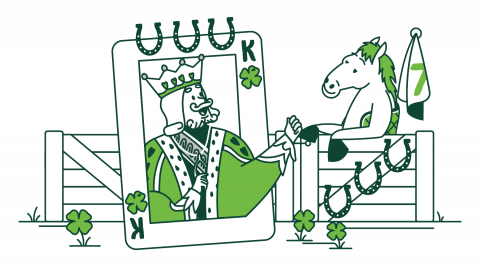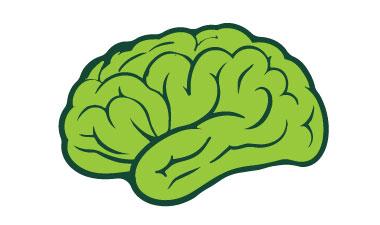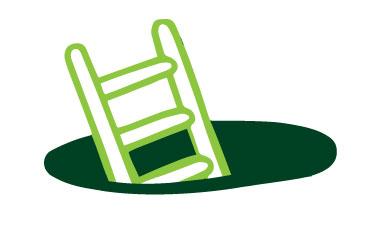Gambling basics
Odds, Randomness & Probability
Just a heads up, luck has nothing to do with whether you win or lose.

Odds, Randomness & Probability
Guessing is so last year.
The good news is that luck isn’t against you. In fact, luck has nothing to do with whether you win or lose. There’s no way to predict the outcome of the game — it’s completely random. The only thing you can count on is unpredictability.
Odds & Randomness
Lots of people dream of winning the lottery or getting the “perfect” poker hand, but do you know what the real chances are? When you flip a coin, there’s always a 1 in 2 chance you’ll land on heads. Each toss is independent of what came before, so two tosses don’t guarantee you’ll land on heads…even once.

Probability
Probability and odds are related ways of describing a player’s chances of a winning outcome.
Probability [prob-uh-bil-i-tee]
The number of ways that an event can happen, set against the total number of possible events that could happen.
Basically, probability predicts how often something will happen, but doesn’t predict when exactly it will happen. Understanding probability can help you figure out the likely long-term bottom line of a particular game is and if the game is worth the money spent to play.
Odds can be an exact measure of win probability, but are subjective in most games. When odds are referred to in games of pure chance, the probability is precise. When odds are referred to in games of skill, it is an estimate of payout for each unit bet.

Randomness & Hit Frequency
Randomness refers to things happening by chance. That means there is no purpose, no plan, no pattern and it is never influenced by past patterns or events. It’s completely unpredictable. So that means that all the strategies and systems gamblers come up with to help them predict outcomes don’t work…at all. Gambling is all about unpredictability.
You can find randomness in lots of things
- vlts generating different combinations every millisecond
- Shuffling multiple decks of cards in blackjack
- Using a ball hopper in lottery and bingo
- Spinning the wheel in roulette
- Rolling dice in craps
Hit frequency is defined as how often a slot machine will have a winning outcome and, like return to player, is usually given a percentage. So a hit frequency of 10% means a machine will stop on a winning combination about 10% of the time. These percentages can range from 3% to 40%. Machines with smaller hit frequencies tend to have larger jackpot opportunities. Then there are the machines that offer multiple lines on each spin so they give the illusion that a player is winning more often, but in reality, the losing combinations will far outnumber the winning ones.
House Edge & Return to Player
House edge is a calculation used by gambling service providers to make sure the house always ends up making money. House edge is usually given as a percentage that represents the average amount of all wagers a player will lose over the long term. Combined this with randomness, and house edge means players need to have a “hope to win, expect to lose” attitude.
Return to Player (RTP) is basically house edge in reverse. If a slot machine has an 8% house edge, the average RTP will be 92%. Over time the machine will keep about 8% of all money bet and will return 92% to players in wins. Percentages are calculated over the long term so any result is possible in the short term.
Related Material

Test your knowledge
Challenge yourself on safer gambling concepts and habits with these fun and interactive games.

Slot Machines and Video Lottery Terminals (VLTs)
Slot machines and VLTs are among the most popular forms of gambling these days.
Contact Us
Can't find what you are looking for? Contact GameSense today with any questions or call the GameSense Info Line at 1-833-447-7523
Learn More